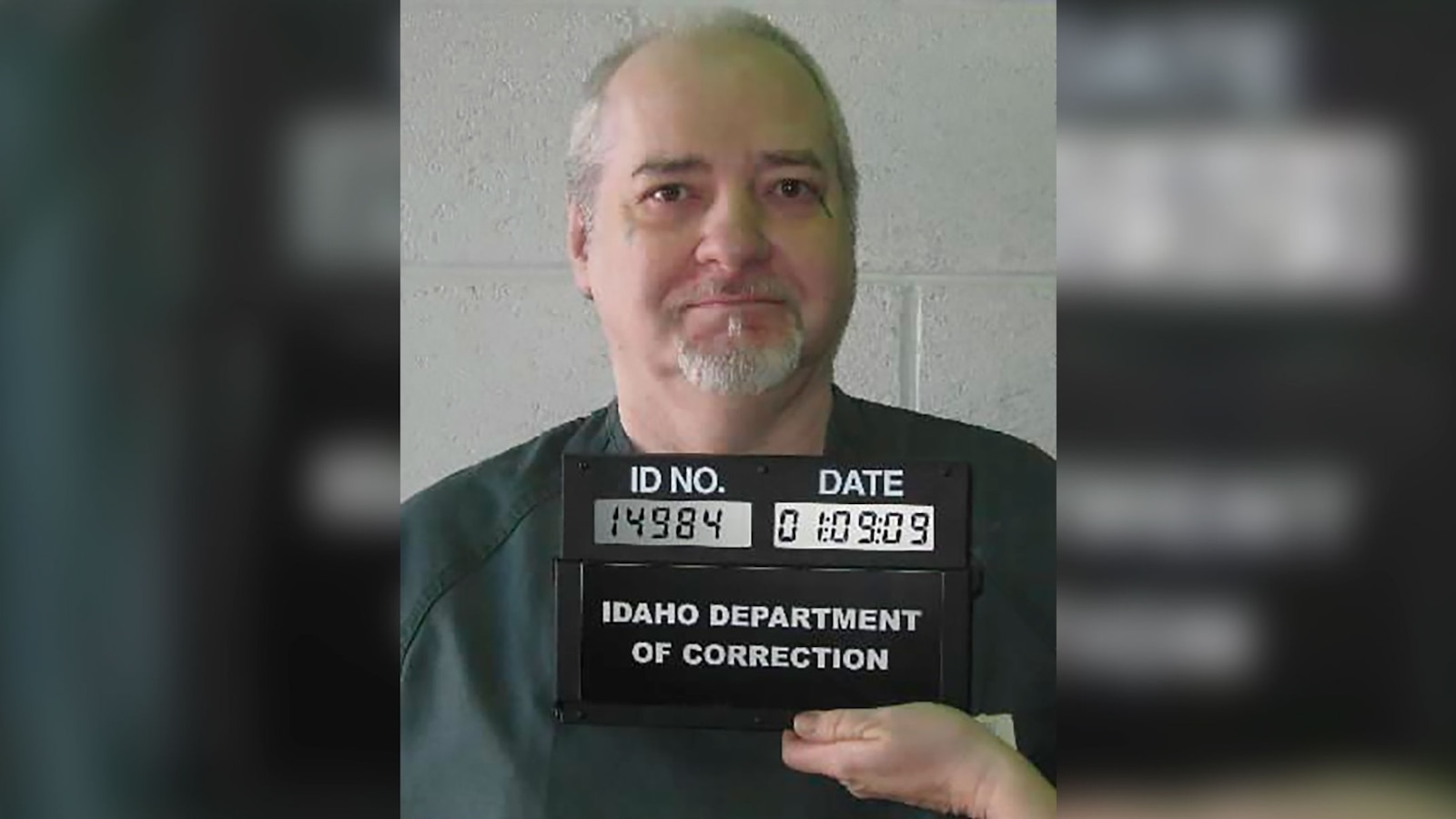
The U.S. Supreme Court has denied Idaho serial killer Thomas Eugene Creech’s last-minute request for a stay of execution.
Associate Justice Elena Kagan issued the decision to deny Creech’s request Wednesday morning, clearing the way for prison authorities to carry out his execution by lethal injection.
Attorneys for the 73-year-old Creech, Idaho’s longest-serving death row inmate, had filed a certiorari petition that the High Court halt the execution to give the panel time to review the decision by the Idaho Supreme Court denying Creech’s appeals.
“The application for a stay of execution of sentence of death presented to Justice Kagan and by her referred to the Court is denied,” the ruling said. “The edition for a write of certiorari is denied.”
Barring a last-minute reprieve by Idaho Gov. Brad Little, Creech will become the first person executed in Idaho in 12 years.
Little has already said he has “zero intention” of halting the execution at Idaho Maximum Security Institution near Boise.
“Thomas Creech is a convicted serial killer responsible for acts of extreme violence,” Little said in a statement issued on Jan. 29. “His lawful and just sentence must be carried out as ordered by the court. Justice has been delayed long enough.”
In the petition to the Supreme Court, Creech’s attorneys argued that his due process rights were violated by the Idaho Supreme Court.
“Mr. Creech has identified a substantial need for guidance from the Court on an issue of great national importance and he has brought a strong vehicle for it to do so,” Creech’s attorney wrote in the petition, asking for “clarity on [the] question of when a state’s post-conviction regime affords little meaningful review to legitimate federal constitutional claims that it violates due process.”
The petition added, “There are strong reasons to suspect that at least some states have gone too far in limiting post-conviction review, thus calling for the Court’s intervention.”
The U.S. Court of Appeals for the Ninth Circuit in San Francisco also denied Creech’s latest appeal in a ruling issued Saturday, prompting attorneys for the condemned man to take their argument to the Supreme Court.
The Idaho Department of Corrections issued a statement Wednesday morning saying it is prepared to move forward with Creech’s execution.
“Last night, Mr. Creech visited with his wife throughout the evening. Additionally, his religious advisor spent an hour with him this morning. Mr. Creech had fried chicken, mash potatoes with gravy, corn, rolls, and ice cream for his last meal. Mr. Creech has remained cooperative in the days leading up to the execution,” the corrections department statement read.
Creech, according to prosecutors, has been convicted of five murders in three states, including three committed in Idaho.
In a 1993 opinion issued by the U.S. Supreme Court denying an appeal filed by Creech, late Supreme Court Justice Sandra Day O’Connor wrote that “Creech admitted to killing or participating in the killing of at least 26 people.”
“The bodies of 11 of his victims — who were shot, stabbed, beaten, or strangled to death — have been recovered in seven states,” she said.
The last murder Creech pleaded guilty to occurred in 1981 at an Idaho maximum security prison when he killed 23-year-old David Dale Jensen, a disabled fellow inmate, by beating him to death with a sock filled with batteries, according to prosecutors. At the time of Jensen’s slaying, Creech was serving two life sentences for a double murder he committed in Idaho and had been convicted of murders in California and Oregon.
Creech argued in his recent appeal that his due process rights were violated by the Idaho Commission of Pardons and Parole and the Ada County, Idaho, Prosecuting Attorney’s Office.
At the commutation hearing in October, Ada County deputy prosecutor Jill Longhurst told the commission that Creech is a “sociopath” who has “utter disregard for human life.”
“Mr. Creech is a serial killer, and in 1981 said he would kill again, and he did,” Longhurst told the commission. “Thomas Creech is the most prolific serial killer in Idaho.”
The Supreme Court has recently denied Idaho serial killer Thomas Creech’s request to delay his execution, bringing an end to a long and drawn-out legal battle. Creech, who was convicted of killing five people in the 1980s, had been fighting his death sentence for years, claiming that he did not receive a fair trial.
Creech’s request for a delay was based on the argument that his defense team had not adequately investigated his mental health at the time of the murders. However, the Supreme Court ruled that there was no evidence to suggest that Creech’s mental health played a significant role in the crimes he committed.
The decision to deny Creech’s request comes after years of legal wrangling, with multiple appeals and challenges to his death sentence. The victims’ families have been waiting for justice for decades, and they have expressed relief that Creech’s execution will finally be carried out.
Creech’s case highlights the complexities and challenges of the death penalty system in the United States. While some argue that the death penalty is necessary for justice to be served in cases of heinous crimes, others believe that it is a cruel and outdated form of punishment.
The Supreme Court’s decision to deny Creech’s request for a delay sends a clear message that justice will be served for the victims and their families. It also serves as a reminder of the importance of upholding the rule of law and ensuring that those who commit heinous crimes are held accountable for their actions.
As Creech’s execution date approaches, there will undoubtedly be continued debate and discussion about the death penalty and its place in our justice system. However, for now, the focus remains on bringing closure to the victims’ families and ensuring that justice is served in this tragic case.


